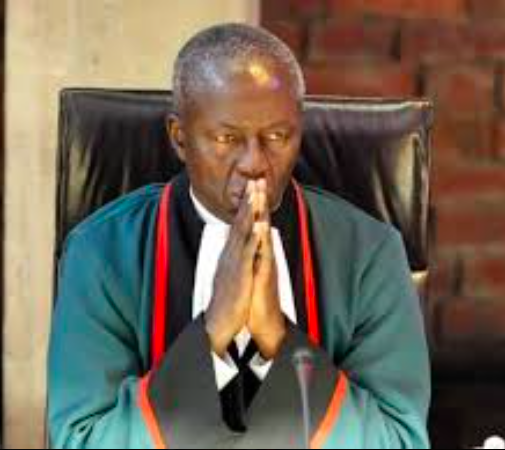Cape Town – Former deputy chief justice Dikgang Moseneke will join a panel of judges at the International Court of Justice (ICJ) to hear South Africa’s case against Israel for alleged violations of the Genocide Convention.
The case, set to be heard next week, is focused on Israel’s actions in the Gaza Strip, particularly concerning the indiscriminate use of force and forcible removal of inhabitants.
South Africa, lacking a judge of its nationality on the ICJ bench, has invoked Article 31, paragraphs 2 and 3, of the ICJ Statute, allowing them to appoint a judge ad hoc for this specific case.
The international relations and co-operation department said South Africa is “gravely concerned with the plight of civilians caught in the present Israeli attacks on the Gaza Strip due to the indiscriminate use of force and forcible removal of inhabitants”.
Under Article 31, paragraphs 2 & 3, of the Statute of the International Court of Justice, SA approached Justice Dikgang Moseneke, to join ICJ judges & hear SA’s case against #Israel. Prof @DireTladi4ICJ starts tenure in Feb.
LISTEN | Mr @ClaysonMonyela, Head of #PublicDiplomacy pic.twitter.com/NVbq1lcojC
— DIRCO South Africa (@DIRCO_ZA) January 5, 2024
“South Africa has approached judge Dikgang Moseneke, who has agreed to join the other ICJ judges on the bench on an ad hoc basis and hear our case against Israel.
“Under article 31, paragraphs 2 and 3, of the Statute of the International Court of Justice, a state party (South Africa) to a case before the ICJ which does not have a judge of its nationality on the bench may choose a person to sit as judge ad hoc in that specific case.
“South Africa has approached Justice Dikgang Moseneke, who has agreed to join the other ICJ judges on the bench to hear South Africa’s case against Israel,” Dirco’s head of public diplomacy Clayson Monyela said.
According to EWN, The ICJ consists of 15 judges who serve nine-year terms, elected by both the United Nations General Assembly and the Security Council.
Nonetheless, the court’s statute allows a country involved in a case before it, without a representative of its nationality on the bench, to appoint a jurist on an ad hoc basis specifically for that case.
Follow African Insider on Facebook, Twitter and Instagram
Picture: X/@MyPAConline
For more African news, visit Africaninsider.com
Compiled by Betha Madhomu


